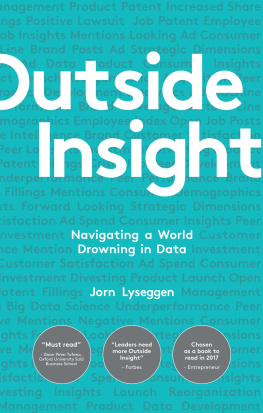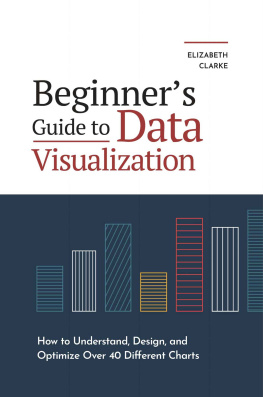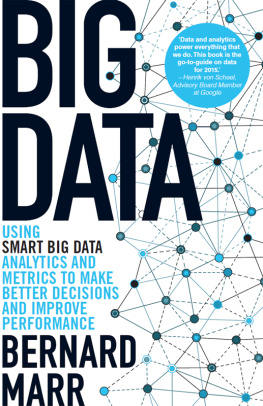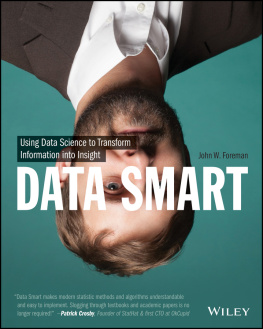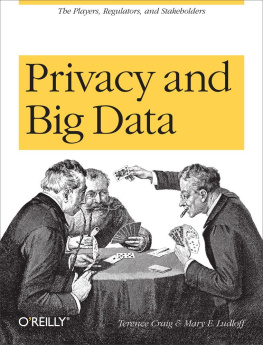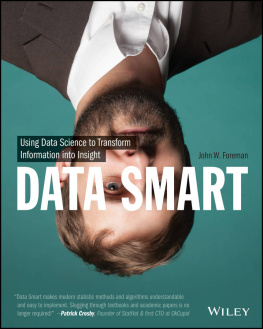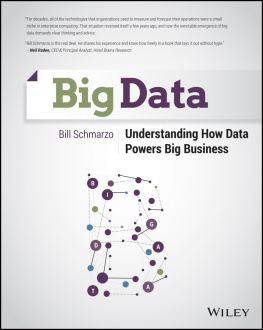Jorn Lyseggen
OUTSIDE INSIGHT
Navigating a World Drowning in Data
To Kai and Izzy
I won the cosmic lottery when you were born.
I am so proud of you. I love you so much.
PORTFOLIO PENGUIN
UK | USA | Canada | Ireland | Australia
India | New Zealand | South Africa
Portfolio Penguin is part of the Penguin Random House group of companies whose addresses can be found at global.penguinrandomhouse.com.
First published 2017
Copyright Jorn Lyseggen, 2017
The moral right of the author has been asserted
ISBN: 978-0-241-28164-2
Preface
In the summer of 2001 I took a step back and tried to identify the macro trends that would shape the world in the years to come. I was set on starting a new company and tried to identify an important trend to ride. One trend that I found very intriguing was the explosion of online information. We were drowning in information, and manually it was simply too time-consuming and hard to make sense of it all. The obvious answer to the problem seemed to be a piece of software that could track and analyse all this information automatically.
That is how the company Meltwater was started. We were two guys and a coffee machine, and we started the company in a shack in Oslo, Norway (our address was Shack 15), with starting capital of US$15,000. Our vision was that when executives and decision-makers arrived for work in the morning and had their usual cup of coffee, our software would create a summary of what had happened in the world during the previous twenty-four hours in a form that was so simple to read that within seconds an executive would get the key updates that he or she needed about competitors, key clients and their own brand. Our slogan was Informed decisions, because we wanted to help executives to take advantage of the information that was now available online in addition to all the traditional data they had at their disposal.
At the time we did not realize how big a macro trend we had stumbled upon. Initially, we focused on online news and company websites. We didnt anticipate the rise of social media. Facebook was founded in 2004, Twitter in 2006. Blogs didnt reach mainstream attention until around 2007. All this new online content fuelled a need for new, sophisticated software with the ability to analyse billions of documents every day. Today smart algorithms, natural language processing (NLP), machine learning and big-data techniques are used to create analytics and insights from online news and social media that we would not have dreamed of back in 2001.
Over the years Meltwater has grown into a global business serving more than 25,000 corporate clients in more than a hundred countries. Our clients range from medium-size, local companies to large multinationals. In one way or another we serve 50 per cent of the Fortune 500 companies. We serve every industry, and our clients comprise everyone from Coca-Cola to the Vatican. From humble beginnings we have grown to 1,400 employees, with sixty offices in six continents.
From our clients we have learned ingenious ways to use external information. In addition to the obvious uses, such as competitive intelligence, measuring client happiness and product development, we have also come across a range of surprising cases that we hadnt anticipated. The University of Oslo used our service to measure the speed with which a new spelling of the word ketchup in Norwegian was adapted. A ten-person company from southern Sweden selling windows (glass ones not the Microsoft software) tracked regional news reports for burglaries in order to generate sales leads. A government agency in a European country analysed online chat groups to investigate suspected cases of insider dealing.
Working with clients all over the world and seeing the value they can extract from external information has over the years created a growing realization that we have barely scratched the surface in terms of the role external information will play in decision-making.
Consumers and companies today produce online content at an unprecedented rate. Consumer engagement online and in social media is showing a steady increase. Companies are embracing the internet as a strategic arena to promote their brand, products and jobs, and are increasing their online investment and content creation accordingly. With the rise of new, richer content openly available on the internet, ever more sophisticated business insights can be created.
I believe we are on the cusp of a big transformation when it comes to corporate decision-making. I believe that in the coming years the use of online information will change the way boards are run, the way we develop strategies, the way a companys health is measured and the way executive pay is earned.
These are mind-boggling prospects, and certainly way beyond anything I imagined when I started Meltwater back in 2001. Thanks to the World Wide Web and the rise of social media, the internet has become a treasure trove of consumer insights and competitive intelligence. Today this information is largely underutilized. As companies jockey to improve their positions in an increasingly dynamic and fast-paced competitive environment, the companies with the best ability to anticipate change, and to respond accordingly, will win. Central to this will be a companys ability to use external data and to create insights from the outside.

Jorn Lyseggen
San Francisco, March 2017
Introduction
On 25 April 2016, This was the first quarter in thirteen years that Apple had reported a negative sales development. The markets reaction to the slump was to shave $58 billion off Apples market value, roughly equivalent to the market value of the German car company BMW.
This book describes the valuable insights that can be found in the information that companies and people leave behind on the internet our digital breadcrumbs and how this information is mostly overlooked in corporate decision-making. Job postings, social media, blogs and patent applications are rich sources of forward-looking information. They reveal how much a company is investing, how happy its clients are and its future market positioning. In spite of their obvious strategic value, these sources of information are not commonly utilized today. In this book we will show that those who do pay attention to this new class of data types will develop a superior understanding of their competitive landscape and gain an unfair advantage over their competitors.
Outside Insight stories
This book tells the stories of many different organizations that are already using Outside Insight to gain a competitive advantage and improve their decision-making.
A special Facebook monitoring unit in the NYPD was able to use Facebook data to trace and convict the murderers of an innocent teenager caught in the crossfire of gang warfare, in a crime with no witnesses.
In its early days YouTube benchmarked its media coverage with that of its competitors to see how successful it was in building its brand and creating a following. Its early lead in media mentions was an early indicator that YouTube would be the winner in the online video space.

